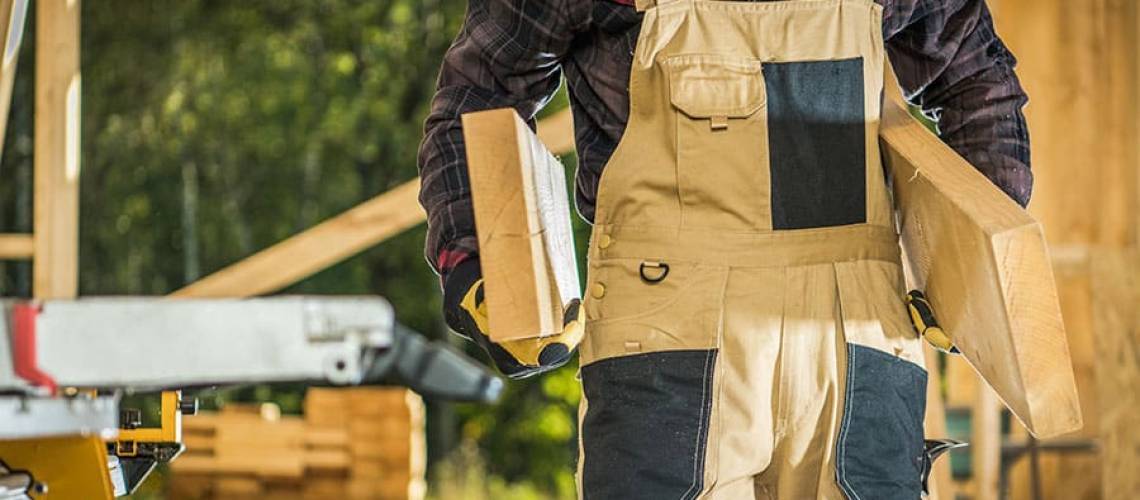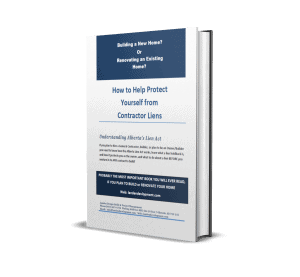So, you have decided to build a new custom home, or maybe decided to renovate your existing home, how do you find a good builder or contractor?
How do you know if a builder or contractor is any good at what they do? This may sound like a simple question! But, it could be one of the hardest things to do!
If you happen to hire the wrong one, it could cost you more than just dollars, it could literally cost you your home, or create a legal nightmare that could take MANY years to resolve!
There is however a few basic steps that you can take to make sure you are engaging the right “ONE” for your project. And further, there are a few steps that you must do to make sure that you are protected from any “bad apple contractor’s” that might be looking to rip you off, or that simply don’t know what they are doing!
Due Diligence is need to find the right builder
The main key is due diligence, meaning, you need to do some up-front homework to weed out the riff raff, and then only deal with reputable companies.
There are a few stages to this due diligence; the first stage is doing some homework as to where to start looking? One of the best places to find a good builder/contractor is asking your friends, neighbours and family members if they can recommend someone that they have worked with before and were happy with. In the case of Landen Design Build, we get more than 70% of our business from direct referrals!
If asking your friends and acquaintances fails to produce any good leads, then ask around at a few building supply companies, or other suppliers in the industry related to what you want to have done, for example if you want a kitchen renovation done, ask a few stone counter-top suppliers if they could recommend any good kitchen renovators?
These suppliers will have a list of guys that they “like to work for”, and possibly may even tell you whom to avoid! As these suppliers will generally have a good idea who runs a tight ship and pays their bills on time!
If that fails, look to the internet, keep in mind that just because a builder/contractor may be at the top of the Google page, it does NOT mean they are a good builder, it just means they may pay more in Google advertising than other builders!
The real proof in verifying a quality builder/contractor is not just in how good they “appear” on the internet, it is in how they “stack-up” in reality! And one of the biggest issues to check out is how long they have been in business, with the second main issue being how experienced they are in what you plan to engage them for! There are lots of good builders out there that do indeed know what they are doing; however there are also enough “want-a-be builders” out there that tend to poison the well for the good guys! Making it a bit hard for the average homeowner to weed out the good from the bad guys! (See also our checklist form further down this article).
Google review and other reference sites such as Trusted Pro’s, at are also a good way to help weed out any possible fake reviews that might be posted on a candidate contractors website.
However, do not just rely on these types of sites, as you will note most have a big disclaimer that states something like: “Although we do our best at “____site” to try and verify the validity of our members registered on our site, we cannot guarantee the integrity of our members” In other words they wash their hands of any liability if you find and use a possible “want-a-be” contractor from their site! However, sites like this do add another level of verification to “add” to the rest of your due diligence research!
Don’t give up on your research!
Once you have a list of possible builder candidates, it is then time to narrow down this list to say only 3-4 builders/contractor’s and to do this you need to do “more” due diligence / homework.
We have included below a 40 point checklist that you should go through with each possible builder/contractor candidate. Once you have the answers to these questions you still need to do “more” due diligence BEFORE you engage a builder or contractor.
You need to follow up with parties such as the Workman’s Compensation Board (WCB) to make sure the builder/contractor is registered.
Then follow up with local licencing authorities to verify that your builder/contractor is licenced. You could then contact the insurer of the contractor to make sure they are covered with a minimum of $2,000,000 in liability insurance, and verify with their insurer that their policy is fully up to date.
Follow up with agencies like the BBB, Trusted Pro’s etc. to see if there are any negative reports related to the candidate builder.
You might also want to check court records to see if there is any past or pending litigation or other negative court filings related to a selected builder/contractor.
This court record check is not hard to do, but will cost a small courthouse fee, check with the court house website on how to do this, as the last thing you need is to get involved with guy that is already being sued!
https://www.albertacourts.ca/pc/resources/judgments
Then if EVERYTHING seems to check-out, you still need to do even “more” due diligence before you actually engage a builder/contractor. This is where you need to follow up with any references given by the builder/contractor, meaning past customer/client references PLUS, trade and supplier references. One good sign of a quality builder is one with HAPPY trades and suppliers! Suppliers, trades, and subcontractors will let you know if a builder pays on time, or if a builder is well organized with their jobs. One thing a sub-trade hates is unorganized jobs!
You may ask, “So how do you get this list of trades and suppliers, and get a list of past clients”? Real simple! Ask you potential candidate builder to give you a “short list of client and trade supplier references, say 2-4 client references and 2-4 trade reverences. If the builder/contractor refuses to do so, then I think you know the next step with that particular candidate builder!
Protecting yourself
Once you have narrowed you final selection down to just one builder/contractor it is time to make sure that you the Client will be protected from possible liabilities. What do we mean by this? Well, having a “real’ WCB clearance letter in hand BEFORE you sign off on an engagement agreement, and making sure the contract/agreement calls for further WCB clearance letters at every milestone payment you make to the builder/contractor will then insure that you don’t have any WCB liability issues later on! You may ask “what could go wrong with WCB issues”?
Well let’s say that a worker is injured, or worse is killed on your job due to a work accident, if your contractor has no WCB coverage, then you the land owner become FULLY LIABLE, meaning you could be sued for hundreds of thousands of dollars possibly Millions!
The second reason why you want to also see the contractors insurance coverage and make sure you verify directly with the builders insure that their policy is up to date! Further you want to inform your own home insure that you are planning to engage this particular “Contractor”, if you don’t do this; your own insurance could become null and void!
The next big protection issues to deal with are Lien Liability! What does this mean? Well let’s say you engage a builder/contractor, and they put in their full invoice for your project, and you pay that invoice in full! You might think that is the end of it, however, that may be FAR from the END of it! Ask yourself “what happens IF the builder/contractor does not pay his bills”? Then what happens next is a bunch of trade/supplier Liens become registered on YOUR property Title.
And, if you didn’t have a properly and legally set-up Lien Hold Back trust account in place BEFORE the agreement is signed, you will have problems that I can’t delve enough into within this article, however you can download our free e-book Understanding Alberta Lien Rights which does a very deep dive into why this needs to be dealt with up-front, not only within the contract/agreement, but also properly managed by a lawyer acting as trustee of the Lien Hold Back account throughout the duration of the project.
Note: some builders/contractor will tell you they won’t work with a lien hold back, I think you know what to do with that candidate builder!
The Quoted PRICE!
The one thing that every client thinks is the MOST important is the PRICE that is quoted, however that is definitely NOT the most important consideration, when selecting a builder or contractor for a number of reasons! The worst thing you can do is simply “bottom line” a quote and look at the “end number only” without making sure that all the apples and oranges line up! There are thousands of ways that a quote can be manipulated to “appear” to be the best deal, however you might be unknowingly comparing apples to turnips, where there is not supposed to be any “vegetables” included!
The big ONE! Is when you find a bid that is WAY lower than the rest of the other bids, and you think, OH-boy we are going to save a bunch of money here! Wrong! That is the worst thing you can do for a number of reasons, however, I won’t delve into that here, rather you should read our free e-book about “Understanding Alberta Lien Rights” where we do a deep dive into the subject of why picking the cheapest guy is NOT a good idea! And why this could cost you WAY more than you “think” you are about to save with the cheapest guy! Ask yourself this one question “If you quoted a job and found out later that you had made a huge mistake and way under bid a job, what you would do”? Then ask? “Would you walk away from the job when it is only half done so that you don’t lose too much money, or would you possibly not pay the trades and suppliers, or maybe cut out a few things, cut a few corners the owner might not see”? In other words, one way or the other YOU WILL PAY!
You are much better off going with a builder that has given you a fair price and will finish the job as quoted with exactly the quality and specifications as quoted! With everyone being happy at the end! It should be noted that REAL contractor’s should all be within 3-5% of each other, and if there is a bigger spread than this, then something is wrong! As most builders or contractors work mostly off the same tight markup over their hard cost, usually 12-15% which then has to cover off overhead and operations.
So if you find a guy that is say 15% lower than other bids, you are about to engage a guy that will make no money on the job! Sooner or later they figure this out, and usually it becomes you the owner’s problem!
The Next BIG Question “How many bids should you get”?
Regarding the number of bids you should request, there is an industry average or 3-4, and no more than 5 bids that you should request, and there are a number of reasons WHY!
- This is a very tight knit industry, where everyone knows each other, meaning most contractors know who their competition is, plus most builders and contractors tend to use the same suppliers and sub-trades, and word gets around quickly if a job is being “overly quoted”. Meaning, jobs that have more than 5 bidders will be deemed a waste of the bidders and or suppliers time to work on an estimate, that they deem will have very little chance of acceptance, and is simply waste of their time!
- Once word gets out that there are a “bunch/more than 5” requested bids out there, most contractor’s will then simply walk away or put out a “stink-bid” or what is also known in the industry as the “Go-a-way-price” bid, meaning they don’t want to waste their time estimating the job so they fire-out a really high bid! If ALL bidders do this, guess what!
- It is also very unfair to the bidders to ask for more than 5 guys to bid! You need to understand that putting a “real bid/quote” together is a lot of hard work, especially when bidding large jobs like a new home build or major renovation that can take a good builder 80-100 hours or more to put a proper bid package together. Ask yourself how would you like to put 80-100 hours of your time working on something only to find out there are a dozen other guys looking at the same job, and you find out that you just wasted 100 hours of your time for FREE! I am fairly sure if your boss asked you to work 100 hour extra for no extra pay that you would tell your boss “Take this job and shove-it”! Well, that is exactly what happens when you ask too many guys to bid your job!







